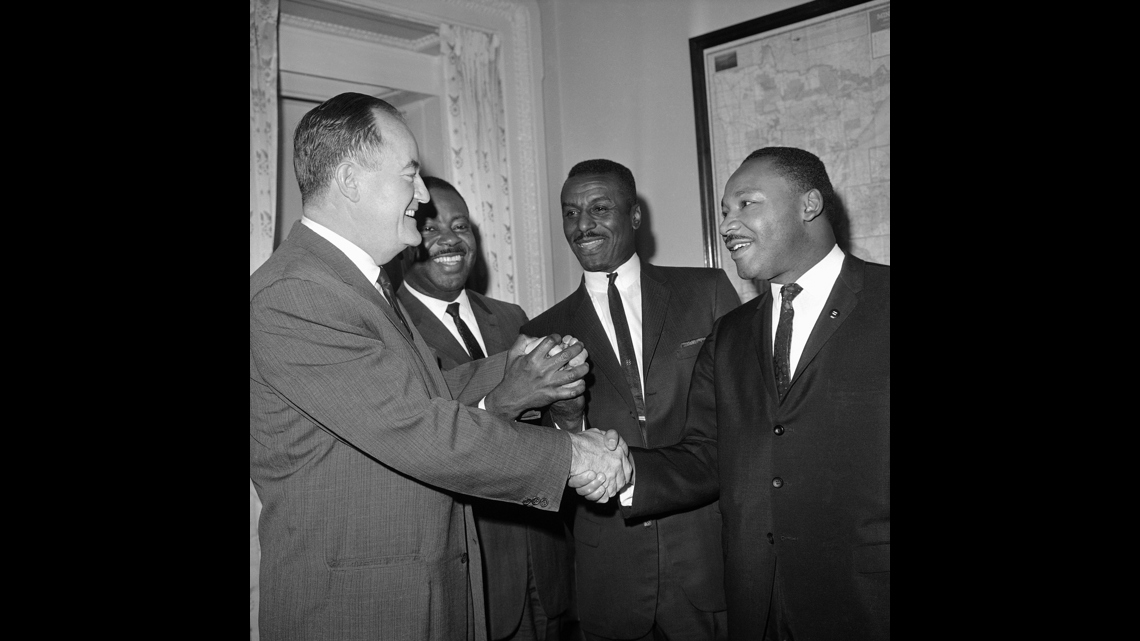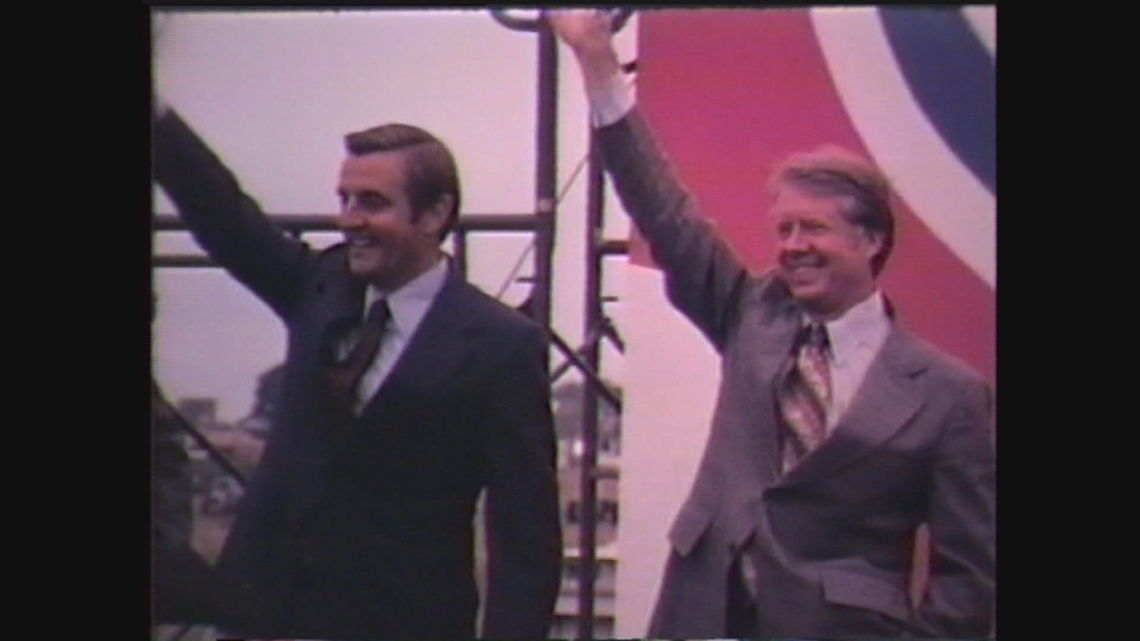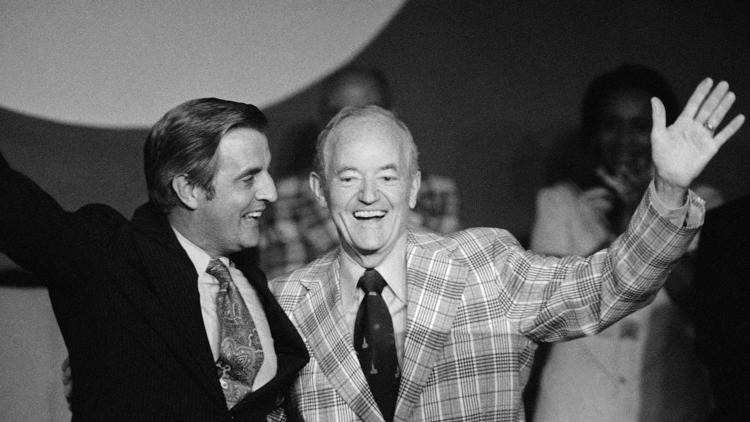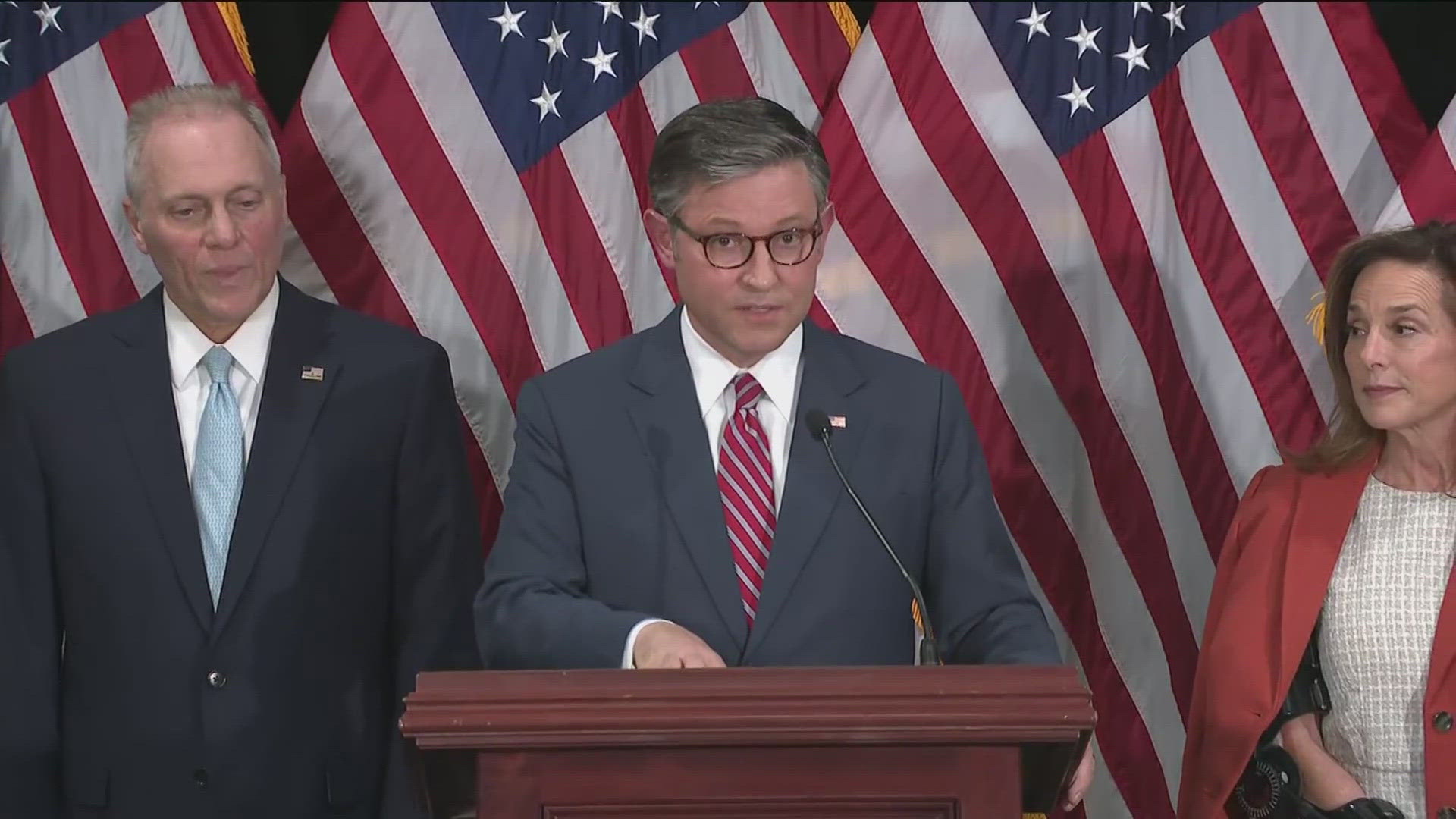MINNEAPOLIS — If voters elect Kamala Harris and Tim Walz this November, Minnesota will join an exclusive club with three vice presidents in modern history, following Hubert Humphrey and Walter Mondale.
Only five other states — New York, Indiana, Massachusetts, Kentucky, and Texas — have sent three or more representatives to the vice presidency.
"Who knows, maybe it's in the water? I can't say for sure," Sen. Tina Smith said in a Zoom interview from the Democratic National Convention in Chicago. "We grow really strong leaders in Minnesota."
To be sure, as the convention draws to a close this week, the November election is far from settled. Despite winning two statewide elections in Minnesota, Walz's record on the pandemic and aftermath of George Floyd's murder has faced heavy scrutiny from Republicans both inside and outside the state, ever since Vice President Harris named Walz as her running mate.
Yet, the two-term governor's rise to prominence on the national political stage offers reminders of both Humphrey and Mondale, two closely-linked former senators who not only reached the vice presidency from Minnesota but also later unsuccessfully sought the highest office in the land.
Like Walz, Humphrey and Mondale were chosen as Democratic running mates in part because of their progressive credentials, and to offer a geographic contrast to the top of the ticket.
Hubert Humphrey
Humphrey was the first to ascend to the vice presidency from Minnesota, after starting his career in local politics as the mayor of Minneapolis. In 1948, representing the city as sitting mayor and candidate for U.S. Senate, Humphrey put himself and Minnesota on the map with a groundbreaking speech at the Democratic National Convention in Philadelphia, in which he advocated for a civil rights platform that outraged the party's Southern segregationist wing.
After his election to the Senate, Humphrey made a name for himself in the realm of civil rights and played a key role in the discussions surrounding the Civil Rights Act of 1964. That, among other factors, led Democratic nominee Lyndon Johnson to select Humphrey as his running mate during the '64 campaign, as the party and nation reeled from the assassination the previous year of President John F. Kennedy.
At the same time, Humphrey's support for civil rights was also seen as a vulnerability in the South. This potential liability was acknowledged in local reporting from The Minneapolis Star, which ran a story on Aug. 27, 1964, with the headline: "Humphrey Choice Splits City Voters."
George Stroncek of Columbia Heights told the newspaper, "I think he'd make a very good vice president," while Dennis Besod of South Minneapolis said "myself, I don't approve... I think Humphrey will cost Johnson a couple of the big states because of the civil rights thing."
Accepting the vice presidential nomination at the Democratic National Convention in 1964, Humphrey leaned into his civil rights record but spent a large portion of his speech attacking the Republican presidential nominee, Barry Goldwater of Arizona, for his hawkish Cold War foreign policy and opposition to the Civil Rights Act.
Following the lead of his boss, LBJ, Humphrey painted Goldwater as an extremist who did not enjoy the majority of support among mainstream GOP members.
"In their recklessness, in their radicalism, they distort the American conservative tradition," Humphrey said. "Yes, those who have kidnapped the Republican Party have made it this year, not a party of memory and sentiment, but one of stridency, of unrestrained passion, of extreme and radical language."
Goldwater, for his part, attacked the Johnson-Humphrey ticket for big spending and excessive government. Ultimately, the nation voted overwhelmingly for Johnson over Goldwater, although the Republican candidate's wins in the South shifted the electoral map for years to come.


As vice president, Humphrey inevitably became associated with the Johnson administration's unpopular pursuit of the Vietnam War, which doomed his own presidential candidacy in 1968 after Johnson voluntarily dropped out. The infamous 1968 Democratic National Convention in Chicago was overshadowed by anti-war protests and violent clashes with police outside the venue.
Despite his loss to Richard Nixon in the general election, one of Humphrey's phrases from the '68 campaign — "the politics of joy" — has found its way into the rhetoric of the Harris-Walz campaign in 2024.
Walter Mondale
Eight years after Humphrey's defeat to Nixon, Democratic presidential nominee Jimmy Carter again turned to Minnesota by selecting Senator Walter Mondale as his running mate for the 1976 campaign against incumbent Gerald Ford. Mondale, the former Minnesota Attorney General, was a Humphrey protégé who had filled his mentor's vacant U.S. Senate seat after Humphrey won the vice presidency.
Much like Lyndon Johnson's selection of Humphrey, Georgia Gov. Jimmy Carter also needed a liberal running mate with a northern flavor. Mondale not only carried those credentials, but also retained vast support from organized labor groups.
"When Jimmy Carter was running for president back in 1976, he was a not-very-well-known governor from a southern state, Georgia, who had virtually no experience in D.C.," said Sen. Tina Smith, who considered Mondale a mentor. "Walter Mondale brought incredible connections and relationships and knowledge of how Congress worked."


At the 1976 Democratic National Convention, Mondale accepted the vice presidential nomination with a nod to both his and Carter's home states.
"We stand together as a nation, reunited at long last, North and South, Georgia and Minnesota, one," Mondale said. "We are one and we are together, with affection and understanding, rejoicing in our newfound and permanent national unity. And this year, for the first time since 1848, we will elect a new President of our country who is a Southerner and who shows his people and our country how to get together in national unity."
When Carter defeated Ford that year, Mondale became Minnesota's second vice president and spent the next four years heavily involved in the administration.
"Mondale really remade the role of vice president in modern American history," Sen. Smith said. "Every vice president since Mondale has followed in his mode, and have used that position to really advance the goals of the administration in tangible ways."
However, Mondale left office after Carter's defeat to Ronald Reagan in 1980.
Four years later, joined by the nation's first female running mate in Geraldine Ferraro, Mondale won the 1984 Democratic nomination for president but lost resoundingly to Reagan.
"Tonight," Mondale said in his concession speech, "we rejoice in our democracy."



